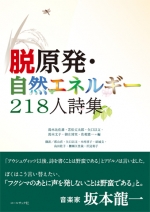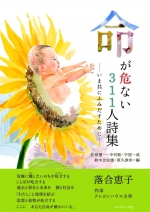verse, prose, and translation
Delfini Workshop
フランス語になった俳人たち(19)
2009-10-23 / 俳句

 、霜降
、霜降(写真)無題
昨日は、近くで火事があった。この二カ月で、近所が焼けたのは3件目である。今日も、終日、ベッドに横たわり、本を読み、音楽を聴くだけ。少し良くなってきた。
皓星社の情報通信シリーズの2冊目になる『サイバープロテスト』が11月下旬に発売!
秋の空えい脱糞をわるびれず
海に出て北の山火事収まらず
秋深き背で物言ふ男かな
☆
デイヴィッド・G・ラヌーによる一茶の英訳
not falling
on the insincere village?
Rain of the Tiger
makoto naki sato wa furanu ka tora ga ame
.誠なき里は降ぬか虎が雨
by Issa, 1822
According to tradition, if it rains on the 28th day of Fifth Month, the raindrops are the tears shed by Tora ("Tiger"), the wife of one of the Soga brothers of medieval times. Yuasa explains: "In the twelfth century Sukeyasu was murdered by Kudo^ Suketsune, and the murdered man's sons Tokimune and Sukenari had vowed from childhood to avenge their father's death. When the elder brother Sukenari parted from his wife Tora before setting out with his brother to kill Suketsune, her tears were so copious that ever after rain fell on that day." The Year of My Life: A Translation of Issa's Oraga Haru (Berkeley: U. of California Press, 1960; 2nd ed. 1972) 75. In this haiku Issa may be referring to his own home village of Kashiwabara, where he was living at the time--making this one of many unflattering portraits of his native town. This haiku appears in Issa's journal immediately before a similar poem: ki ni iranu sato [mo] aran wo tora ga ame this village lacks the spirit of the day... Rain of the Tiger
☆
身にしみて大根からし秋の風 芭蕉
Dans le goût mordant du radis
je sens
le vent d'automne
※Traduction de Corinne Atlan et Zéno Bianu
HAIKU Anthologie du poème court japonais Gallimard 2002
大根の刺すような辛さを
感じる
秋の風
■日本語の「身にしみて」という措辞がいかに効果を上げているのか、フランス語を日本語にしてみるとわかる。
コメント ( 0 ) | Trackback ( 0 )










